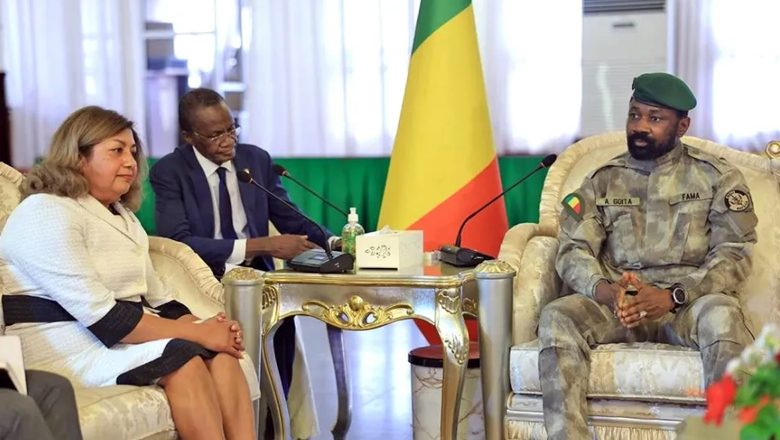Mali and united states reignite security cooperation amid geopolitical shifts

After more than four years of diplomatic frost, Mali and the United States have initiated a cautious yet significant revival of their security cooperation, signalling a shift in Sahelian dynamics and Bamako’s recalibrated foreign policy.
This renewed engagement comes as Mali seeks to diversify its strategic partnerships to counter persistent terrorist threats and navigate an increasingly competitive geopolitical landscape.
The rapprochement gained momentum in July 2025 with two high-profile diplomatic visits.
On July 8, during the U.S. Embassy’s celebration of America’s 249th Independence Day in Bamako, Mali’s Foreign Minister Abdoulaye Diop praised the rekindling relationship, describing it as “a signal for a renewal of political dialogue, grounded in realism, pragmatism, and mutual interests.”
A day later, Rudy Atallah, Principal Deputy Director for Counterterrorism at the U.S. National Security Council, arrived in Bamako. Joined by U.S. Ambassador Rachna Korhonen, Atallah held extensive meetings with Malian ministers of Foreign Affairs and Security.
The visit, he said, aimed to “understand Malian realities” and reinvigorate bilateral cooperation.
Discussions focused on Mali’s transitional government’s control of national security, operational capacity-building for its armed forces, and regional counterterrorism collaboration through the AES Confederation.
The momentum continued on July 21 when William Stevens, U.S. Deputy Assistant Secretary of State for West Africa and Special Envoy to the Sahel, met with Foreign Minister Diop.
Emphasizing President Trump’s commitment to “working with friendly nations,” Stevens discussed expanding economic and security cooperation, as well as improving Mali’s investment climate.
The Awdagust Center for Regional Studies, a Sahel-focused think tank, observed that Washington’s renewed interest also reflects a strategic push to regain intelligence footholds lost following the U.S. military withdrawal from Niger.
Meanwhile, Mali’s leadership views the partnership as a path to greater legitimacy on the international stage, potentially unlocking multilateral funding contingent on improved security governance.
Yet, this balancing act is not without risk. “The challenge for Mali is to prevent geopolitical rivalry from derailing its security strategy,” warned Dramane Diarra, a geopolitical analyst. “Managing U.S. and Russian support simultaneously will require deft diplomacy.”
Historically, Mali and the United States shared close security ties. From the early 1990s through the 2010s, Washington trained Malian officers, provided logistical aid, and supported anti-terror initiatives such as the Pan-Sahel Initiative and the Trans-Saharan Counterterrorism Partnership. However, the 2021 coup triggered an automatic halt to U.S. military assistance under American law.
Now, as both nations cautiously reopen military and diplomatic channels, Mali finds itself at the nexus of competing global interests.
Its future stability may well depend on how skillfully it maneuvers within this complex web of alliances, ensuring that renewed cooperation translates into concrete security gains rather than becoming a flashpoint in a wider geopolitical contest.
About The Author
dailymailafric
I am an avid African news observer, and an active member of Daily Mail Africa.
I’m Passionate about staying informed on diverse topics across the continent,
I actively contribute to publishing on political, economic and cultural developments in Africa.



